- cross-posted to:
- [email protected]
- cross-posted to:
- [email protected]
In the UK, we have a peculiar turn of phrase: “to make a good fist of” something. It means to put up a good show, to make the best of what you have, to succeed despite your challenges. And if you ever need to demonstrate to a non-English speaker what this means in practice, you can show them the 8-bit micro ports of Golden Axe!
Neither the Amstrad, C64 or Spectrum should be capable of running this game well. Yet, somehow, they all make a really good fist of it.
But which fist is best?
Arcade Golden Axe is a Sega classic. A two player fantasy hack 'em up, with three playable characters, some incredibly detailed and imaginative locations and enemies, a great soundtrack and plenty of goblin kicking.
It also came pretty late in the lifespan of the 8-bit micros, around 1990, a time when arcade conversions to the trusty three stalwarts were money generating afterthoughts, intended to milk a captive market hungry to play the big games. It’s fair to say, expectations weren’t high…
Worst of the three is, surprisingly, the C64 version. But, it’s not terrible. It moves well, controls well, and the music is really good. It just feels extremely cut back.
It loses the two player mode of the other ports and generally has only one enemy on screen at once. Some of the enemy and creature placement is different as well. Shame, because it looks pretty nice in motion.
Next - and I’m going to have to ask you to trust me on this - is the really quite good Spectrum version.
Okay, so it looks like a bad Ceefax crash, but if you look beyond the graphics there’s something of a game in there.
It feels like Golden Axe. It has the same enemy placement as the arcade. It has two players. It has all the playable characters. It just looks… bonkers.
But the best 8-bit micro port of them all, is the Amstrad version!
It is obviously cut from the same cloth as the Spectrum port, with the same arcade-faithful feel. Two players, all characters, plenty of enemies. But unlike the spectrum, it doesn’t look like sick. It’s Amstrad-chunky, you know? Colourful, bright, it moves pretty well and controls okay. It feels like a solid attempt that mostly works.
So a rare Amstrad win… among the feeble micros at least!
There were, of course, ports released on more capable systems.
The Amiga got a really good version. Clear, smooth graphics (albeit with quite sparse backgrounds at times) and an excellent soundtrack. In its initial release, it was let down by the limitations of a single button joystick (meaning jump was up and fire), but in this glimmering far future time, we’re lucky enough to have the patched WHDLoad version, which allows for two button joysticks and makes the port much more enjoyable! Almost on par with the console versions, surprisingly.
No such luck on the Atari ST, which suffers not only from one-button limitations, but also everything else limitations. It’s kinda like the Amiga version but with worse sound (so far, so normal), and has the play area bounded by two large gaudy UI panels. Boo!
The MSDOS port is okay, if a little nimble on my MiSTerFPGA emulation. It sounds good though, and the graphics are faithful. It did annoy me by demanding I produce a manual-based password before I could start the game… I had to find a forum post from 1995(!) to get around it (the password is probably AXE, if you’re ever stuck like this!)
Finally, over on the consoles, the Megadrive port is the clear winner. It looks good (especially if you play the colour corrected version), and plays great. A quintessential early title for the system.
The PCEngine CD is, surprisingly, terrible. With drab graphics, jerky movement, the whole thing is annoyingly generally janky.
The Master System is better than it has any right to be. Very playable, but a bit jerky and only one playable character.
The biggest surprise is the (checks notes) Wonderswan Color version. Tiny and faithful, a great port and well worth checking out, should be looking for something to play on your, um, Wonderswan Color.
If you’re going to play one, go with the Megadrive/Genesis version.
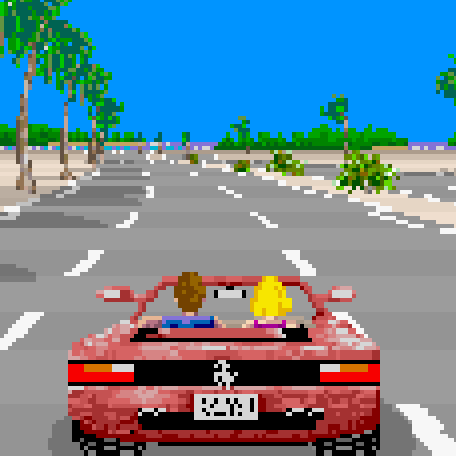

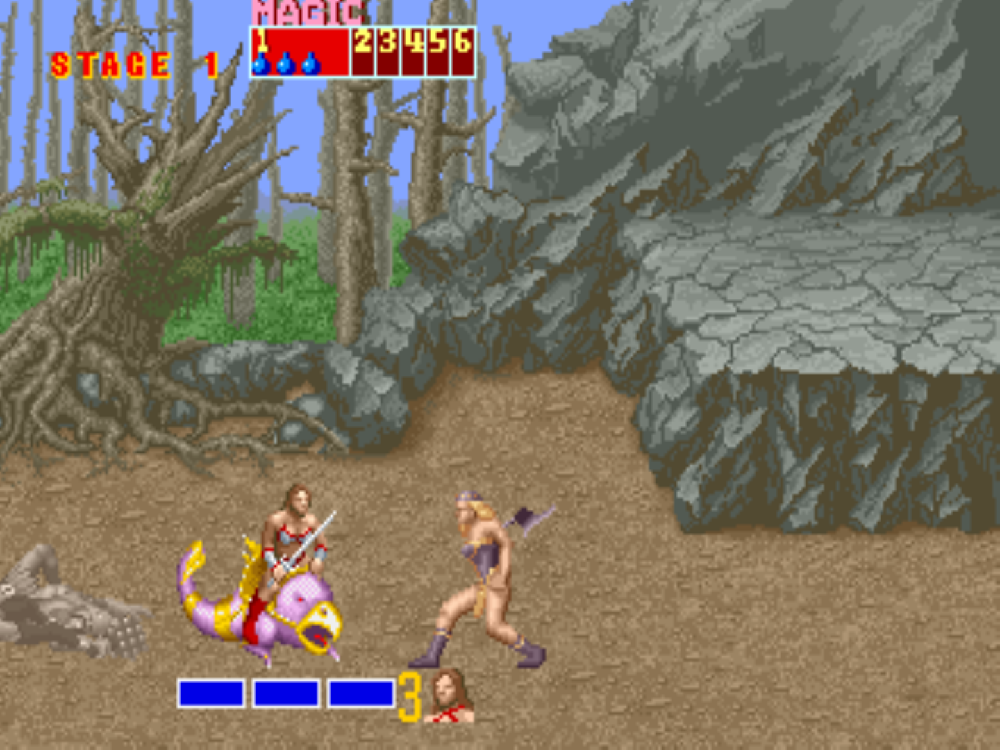
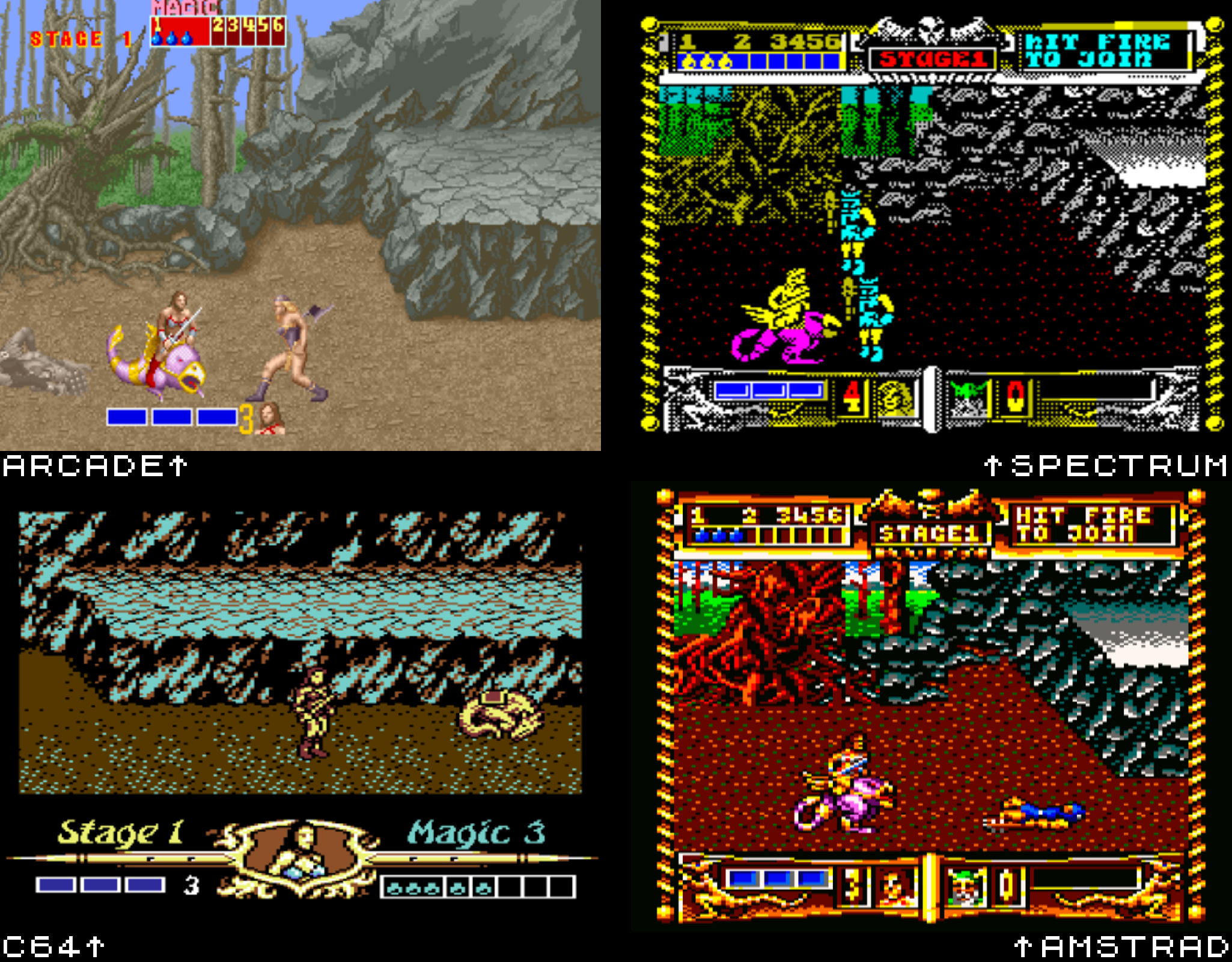
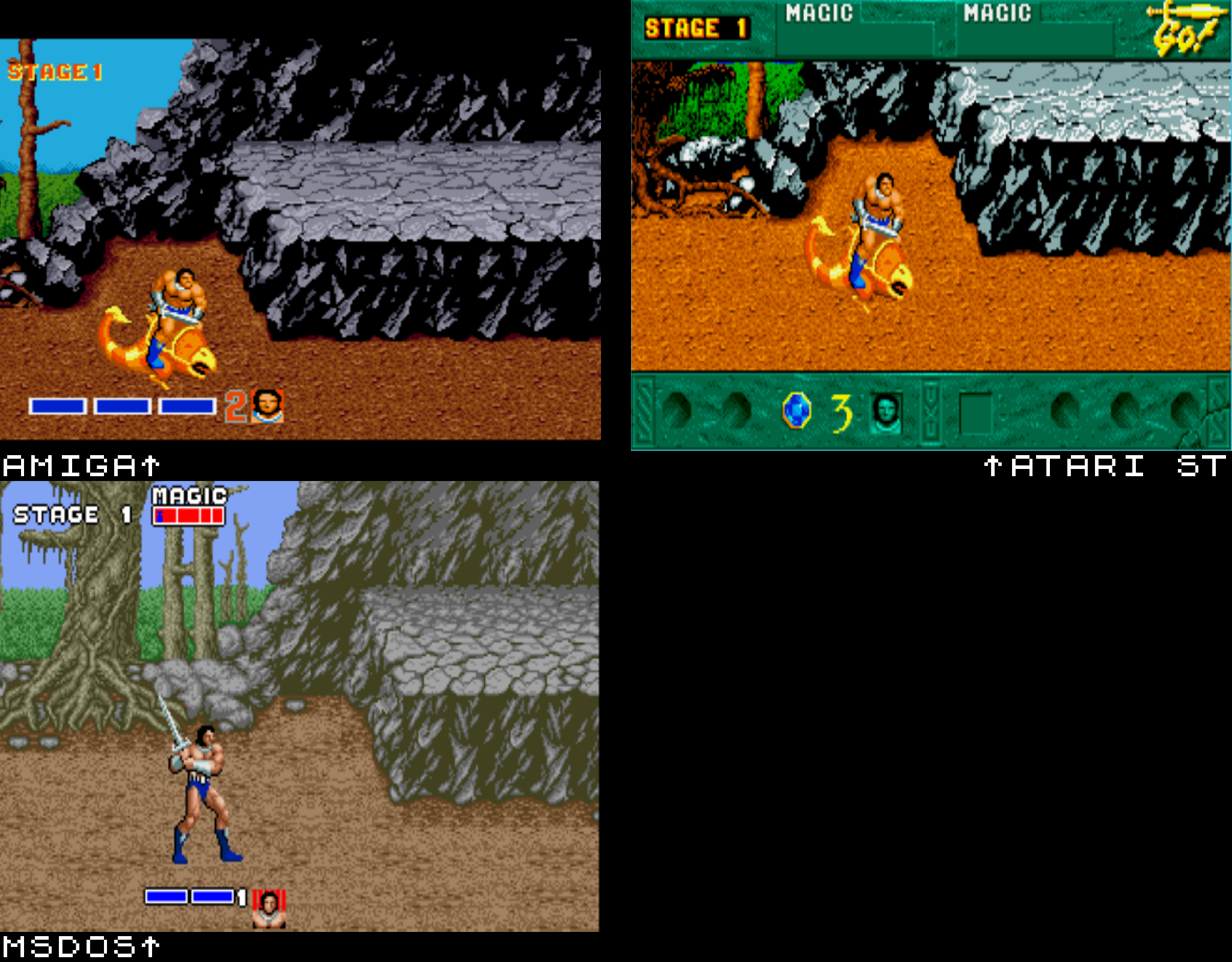
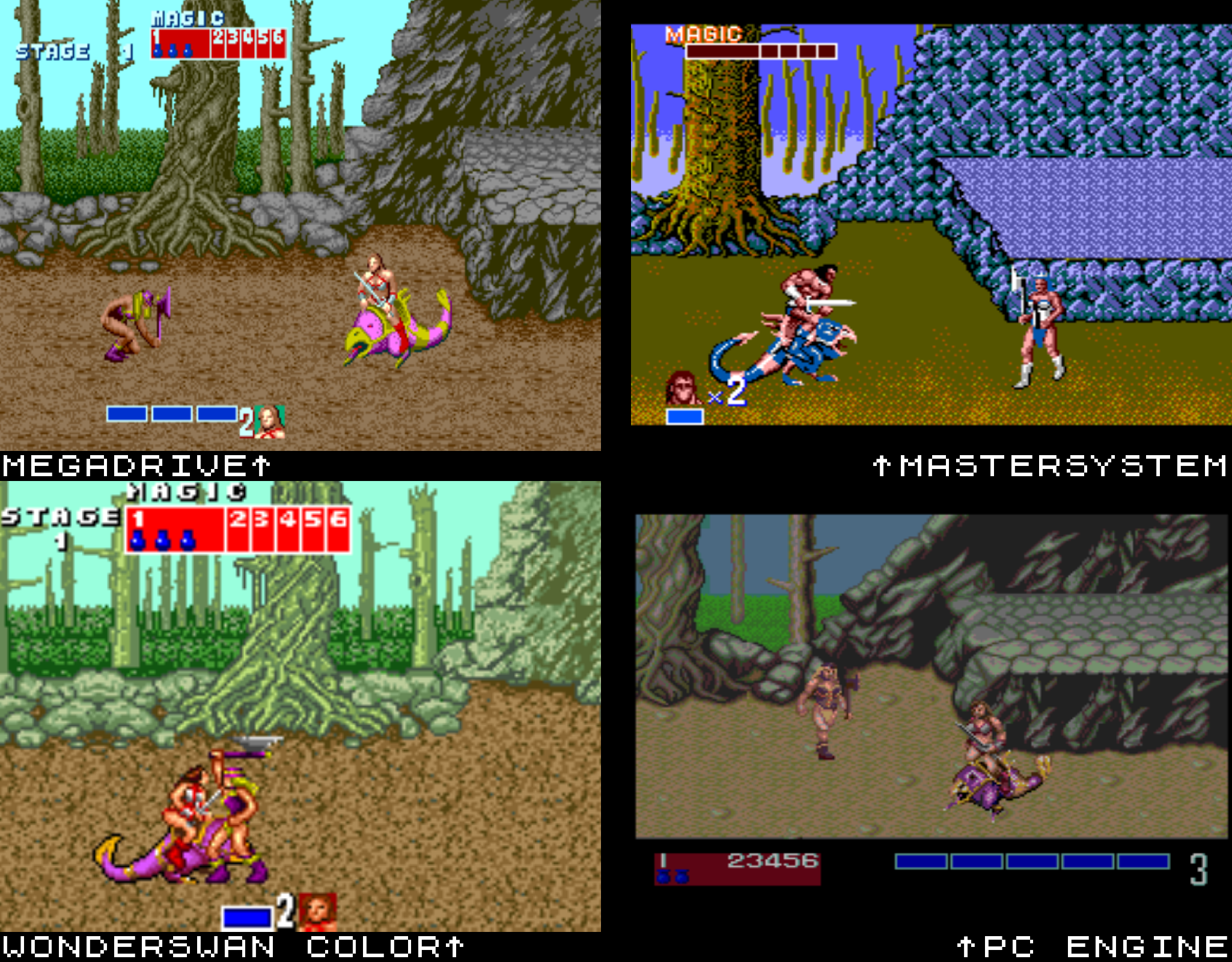
I’m inclined to think the Mega Drive port is actually more enjoyable than the arcade version, even if it gives up a bit in terms of graphics and sound. It’s definitely the version I prefer to play. It is always interesting, though, to see how widely Sega’s arcade games were ported in that era, even considering that they were console manufacturers themselves.